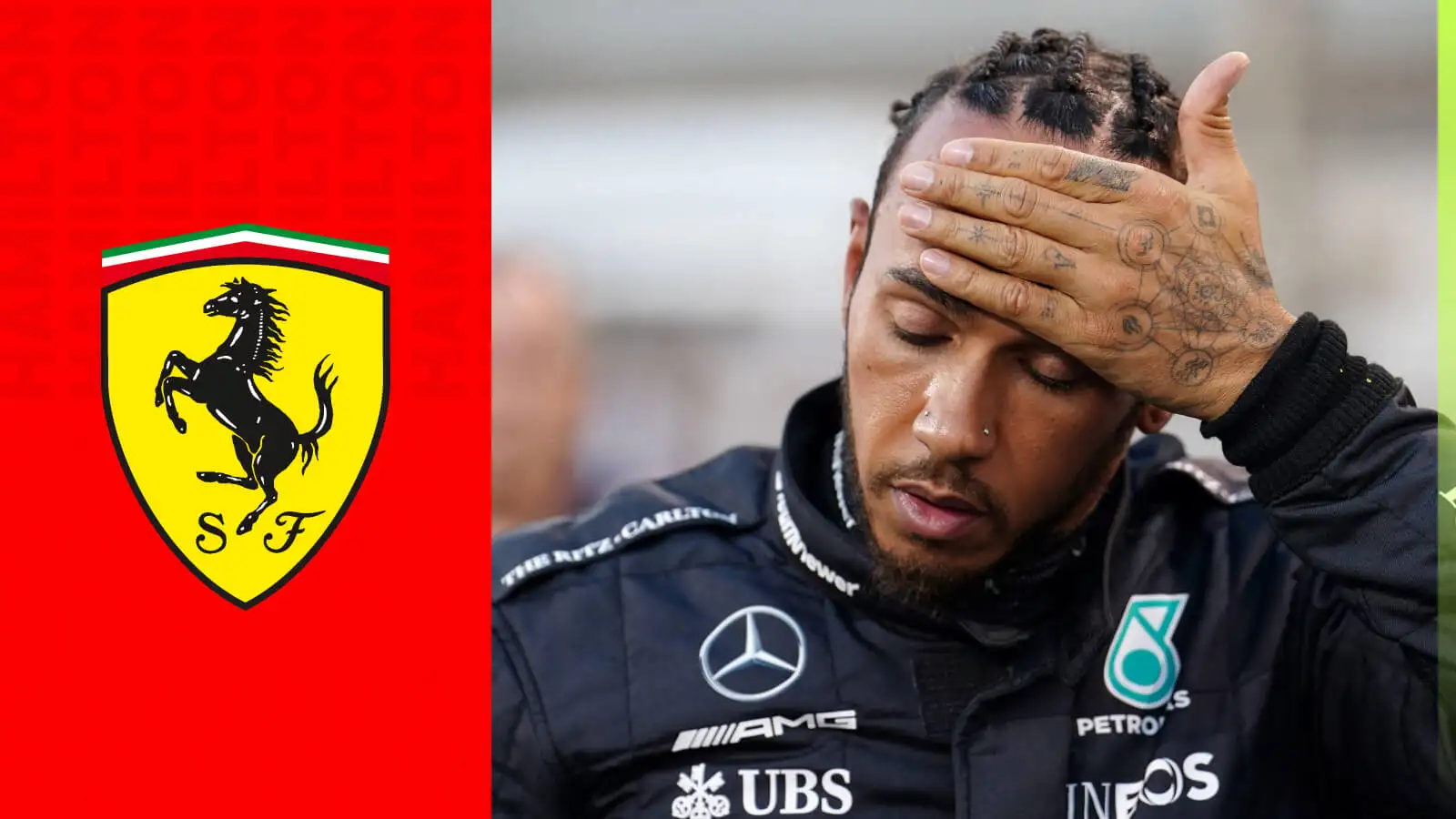Should Lewis Hamilton Have Retired at the End of 2021?

When it comes to Lewis Hamilton, nuance rarely survives the noise. In Formula 1, some drivers enjoy careers that are dissected with perspective and balance. For Hamilton, however, the conversation has rarely been anywhere near the middle ground. His career has been shaped in the public eye by two extremes: blind devotion from fans and relentless dismissal from detractors. Every win, defeat, or off-hand remark has been sensationalized, with debates stripped of objectivity before they even begin.
At the height of his dominance—winning titles year after year, taking pole positions with ease, and seemingly bending the sport to his will—Hamilton was never treated with the straightforward reverence afforded to most multiple-time champions. When other greats racked up wins, the consensus narrative celebrated their achievements. Criticism, when it came, was measured. For Hamilton, the scrutiny was sharper.
His harshest critics insisted he was simply the beneficiary of Mercedes’ dominant machinery, an “average” driver who happened to land in the fastest car. But that version of history conveniently ignores his 2007 rookie season, when he went toe-to-toe with double world champion Fernando Alonso and nearly won the title at his first attempt. That isn’t the product of luck—it’s the hallmark of generational talent.
Others claimed he never faced strong teammates, another argument that collapses under scrutiny. Hamilton’s résumé includes fierce battles with Alonso, Jenson Button, Nico Rosberg, Valtteri Bottas, and George Russell. Across full seasons, he has usually come out on top. The anti-Hamilton narrative has always relied on selective memory.
Naturally, such relentless criticism triggered an equally forceful defense from his supporters. The result? A tribal dynamic that has lasted more than a decade: detractors exaggerating his flaws, fans exaggerating his brilliance, and little space for anything in between.
That same polarization has reemerged in 2025. Fourteen rounds into the season, Hamilton is enduring a challenging period—on track and behind the scenes—amid a difficult debut campaign with Ferrari. Whispered tensions and cryptic comments have fueled speculation about his future. Could retirement be imminent? Should he have walked away years ago—perhaps as far back as the end of 2021?
The question takes us back to the infamous 2021 Abu Dhabi Grand Prix, where Hamilton was denied a record-breaking eighth title in circumstances many felt were manipulated in real time. Since that night, the tangible returns have been modest: two race wins, one sprint victory, a single pole position, and 20 podiums. Mercedes’ post-2021 struggles and Ferrari’s misjudged 2025 car have given him little opportunity to fight for championships. On paper, the argument that he should have retired after 2021 seems straightforward.
If I’m being brutally honest, had I been in Hamilton’s shoes that night, I might have walked away immediately—and loudly. I would have left a lasting symbol of defiance, making it impossible for the sport to ignore the injustice. Why stay, if the system had shown it was willing to manipulate the outcome?
But that’s my hypothetical. Hamilton’s reality was different. He chose to stay. And when we strip away hindsight bias, I believe he was right not to retire.
Why Staying Made Sense
For a competitor of Hamilton’s caliber, the decision wasn’t just about chasing the elusive eighth crown. It was about refusing to be pushed out by the events of Abu Dhabi. Elite athletes are wired to respond to setbacks by trying again, not retreating. Hamilton’s choice to continue was an act of resilience, a refusal to let others dictate the final chapter of his career.
It’s also worth noting that his post-2021 struggles weren’t inevitable. If Mercedes had nailed its 2022 car under the new technical regulations, the fight for titles could have resumed immediately. Had Ferrari produced a genuine follow-up to its 2024 title-contending car, Hamilton might have been in the championship hunt from his first race with them. Change just one or two variables, and the story shifts dramatically—from “he stayed too long” to “he was right to keep going.”
Even without another title, the attempt itself would have been meaningful. The act of returning after 2021, re-engaging in the fight, and refusing to be defined by injustice has value beyond statistics.

The Legacy Question
One of the most common criticisms is that staying too long risks tarnishing a driver’s legacy. I’ve never subscribed to that view. Legacies are defined by an entire body of work, not the final seasons alone. Michael Schumacher’s underwhelming Mercedes comeback didn’t erase his Ferrari greatness. Fernando Alonso’s post-2006 rollercoaster hasn’t diminished his two championships.
Hamilton’s legacy—world championships, all-time records, racecraft at the highest level—remains intact regardless of recent results. The notion that late-career seasons somehow erase earlier achievements is more myth than fact.
Ironically, the same voices now saying he should have retired after 2021 would likely have mocked him for quitting “too soon” had he done so. Just ask Nico Rosberg, who retired immediately after winning his only title and has endured years of accusations of cowardice. If Hamilton had stepped away in 2021 and Mercedes returned to contention in 2022 or 2023, the narrative would have been brutal: “He gave up.”
The Myth of the Perfect Exit
Fans love the idea of athletes leaving at their peak, but sport rarely delivers the storybook ending. More importantly, athletes shouldn’t make career decisions based on preserving a neat final chapter. The risk of failure is part of competition’s appeal.
There’s an old saying: it’s better to regret trying and falling short than to regret never trying at all. Hamilton embodies that sentiment. His choice to race on after 2021 was not about fear of stepping away—it was about conviction that he still had more to give.
The View from 2025
Today, with the 2025 season past its halfway mark, Hamilton’s future is uncertain. If he announced his retirement tomorrow, it would make sense. He’s fought hard in the post-2021 era, pursued the eighth title, and circumstances—more than any personal decline—have kept it out of reach.
But judging the decision he made in December 2021? That’s different. In that moment, with the competitive fire still burning, he made the only choice that felt true to himself. He stayed. And I believe that was the right call.
In the end, Hamilton’s career will be remembered not only for the titles and records, but for the way he carried himself in both triumph and adversity. Retiring after 2021 might have been dramatic, but it wouldn’t have been true to the racer he is. By staying, he showed that sometimes the fight itself—regardless of the outcome—is what defines greatness.
Full Video:
News
Lewis Hamilton Finally Breaks His Silence on the Explosive Ferrari Speculation That Has Been Shaking the F1 World for Weeks – But His Mysterious Words Have Left Fans Even More Confused and Wondering If a Shocking Team Switch Could Actually Be Just Around the Corner
Formula 1 Mid-Season Shake-Up: Hamilton, Red Bull, and the Road to 2026 The summer break is often a time for…
Aston Martin F1 chief agrees with Fernando Alonso about ‘concerning’ situation!
Fernando Alonso finished fifth and Lance Stroll seventh in Hungary, an impressive result just one weekend on from a disastrous…
World Rally Championship star handed severe punishment for hitting FIA official with car!
One World Rally Championship star is walking a points deduction tightrope after an accident while competing saw him hit an…
For decades, Formula 1 has been the ultimate stage for speed and prestige – yet the world’s biggest car manufacturers are strangely absent. Is it the staggering costs, hidden politics, or a quiet push from within F1 itself that’s keeping them away? The truth may surprise you.
Why the World’s Most Famous Car Brands Avoid Formula 1 Formula 1 likes to call itself the pinnacle of motorsport…
In what insiders are calling one of the most dramatic developments in recent Formula 1 history, Red Bull’s relationship with Max Verstappen has reportedly hit a critical point, as a long-hidden problem explodes into public view, raising serious questions about the future of both driver and team.
Hungarian Heartbreak: Is Red Bull’s F1 Empire Finally Crumbling? The 2025 Hungarian Grand Prix was more than just another race…
Whispers about Hamilton’s future intensify after hush-hush meetings leak to the press, sparking wild speculation. Following his shocking high-speed crash in testing, a cryptic new statement adds fuel to the mystery, and the racing world braces for an announcement that could change everything in the coming days.
Franco Colapinto’s Hungary Crash Statement & Fresh Rumors on Lewis Hamilton’s Future The Formula 1 paddock has been buzzing this…
End of content
No more pages to load












